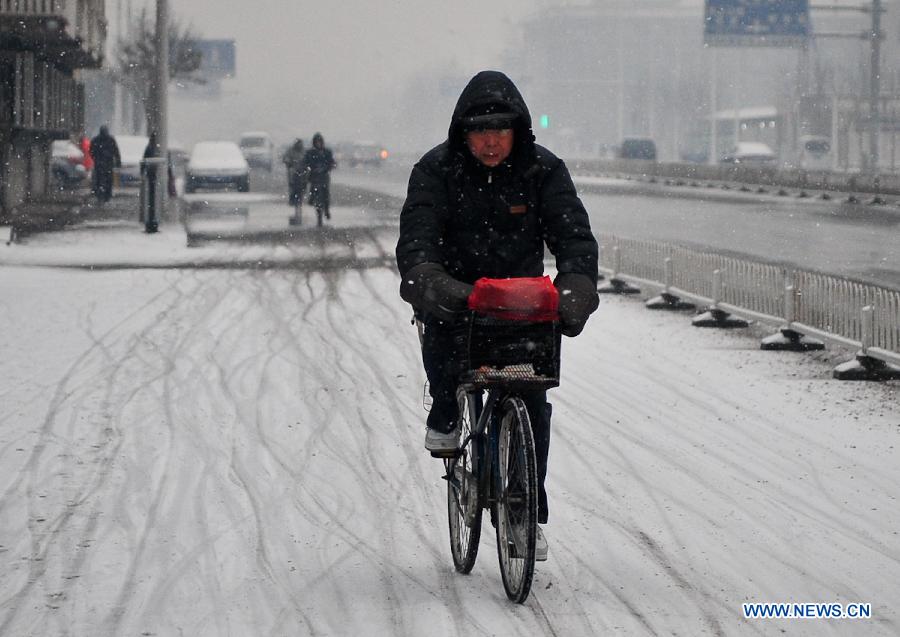
Having trouble getting a taxi in Beijing or Shanghai? There's an app for that.
Tired of fruitlessly standing at roadside trying to get a taxi, Chinese smartphone users in the two metropolises are increasingly turning to software to help them hail a cab.
A quick search online shows a range of free applications, such as iTaxi and Diandianche in Shanghai, and YYzhaoche in Beijing, that aim to take the hassle out of getting a ride.
"It's the ideal way to secure a cab, especially during heavy rain or snow," said Jiang Tiantian, a 21-year-old Shanghai student who regularly uses her smartphone to get a cab.
"I never bother calling taxi dispatch centers now, as the waiting time is just too long."
The apps allow users to send alerts to taxi drivers telling them where they are and where they want to go.
Chen Weiming, who drives for Dazhong Taxi Corp in Shanghai, said he is already a fan. He recently downloaded iTaxi to try out, with his daughter playing the role of passenger.
"Any cabbies in the vicinity get the information, and they can choose whether to go for the fare or not," he said. "It's certainly quicker than calling our office."
Shanghai's four largest taxi operators - Dazhong, Qiangsheng, Haibo and Jinjiang - all have dispatch centers, and together they handle an average of 57,600 calls a day, about 3.3 percent of all rides, according to the municipal transport authority.
Beijing has three central hotlines for passengers to call - 96109, 96103 and 96106 - and each works with multiple cab companies.
Yet, the smartphone apps "are a lot fairer" for taxi drivers, Chen said, explaining that some dispatch handlers manipulate the system to ensure friends and relatives get the most profitable jobs.
But Zhou Lihua, who like Chen is a taxi driver in his 60s, disagreed. He said he feels the smartphone system is unfair and unsafe.
"I don't have a smartphone, and I have no idea how to use a touchscreen. How am I going to compete with younger drivers?" he said.
He also warned that encouraging cabbies to keep an eye on their phones while driving could lead to accidents.
 |
















 China's weekly story (2013.01.27-01.31)
China's weekly story (2013.01.27-01.31)


![]()
